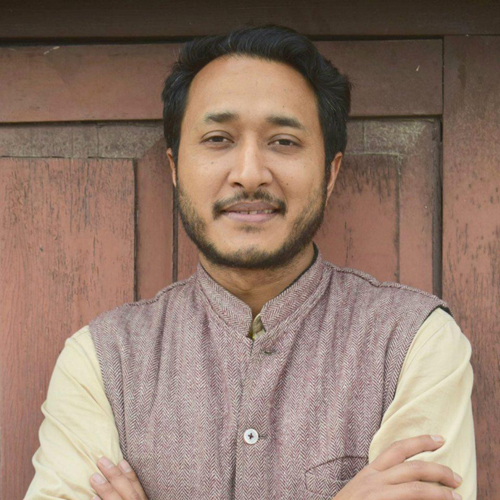Columns
Evoking responsibility to bridge the youth-government trust deficit
Youths will have a sense of ownership towards nation-building only when they are directly involved in policymaking.
Pukar Malla
1500 able bodies carrying bags packed with family expectations wait patiently in a long snaky queue. They know not what to expect, but are willing to trade the possibility of hope of working in the homeland for the probability of death working in atrocious conditions in foreign lands—a common reality for the youth who migrate to foreign countries in search of opportunities that they cannot find at home.
Encompassing 40.3 percent of the total population, youth are the demographic majority of our nation. This young mass, whose talent, passion and energy have been capitalised for socio-political movements, are now well-placed to lead much-awaited economic development. However, the present numbers tell a different story as a report published by the International Labour Organization shows that the youth unemployment in Nepal stands at 19.2 percent, a figure much higher than the 2.7 percent national unemployment rate. Stemming from this are other issues of national interest such as the declining internal human capital and growing economic dependence on foreign nations. With Nepal transitioning into an ageing society in the next 9 years, there is an urgent need to divert attention to this issue.
Historically, Nepal has borne witness to persistent political instability, governments’ failure to fulfil promises, inadequate institutions and systems, and corrupt bureaucratic practices. These have eroded the youth’s faith in its own government, resulting in weak youth participation in government programmes. On the other hand, the youth’s impatience driven by their appetite for quick results has tainted the government's perception of them. Such dented trust on both sides has been serving as a barrier, pushing back collective efforts necessary for our national development. When we elect representatives, we sign a social contract. We offer the office-bearers authority in return for direction, protection and order. Government, on the other side, also expects responsible citizenship from youth. Breach of these expectations by one or both sides reduces trust.
Hence it becomes critical to answer these questions: Do youths fulfil responsibilities before asking for rights? Does the government fulfil promises before asking for votes? And, who takes the first step?
In order to circumvent the slump in the development process from weak policy implementation, the government and youths both need to reflect, recognise and respect their self and shared responsibilities. A campaign that I am a part of—Yuwa Aaja!—has been bolstering trust and interdependence between the government and the youth to tackle domestic youth unemployment issues. The campaign is premised on the theory of change that strengthening innovation and leadership capabilities of youth through action learning will enable them to advocate for suitable evidence-based policy changes. The idea is that when youths are directly involved in policymaking, they will have a sense of ownership towards nation-building.
The first cycle of the programme brought together 30 motivated and responsible Nepali youths elected through a rigorous selection process at the local (Tansen and Bagnaskali municipalities, Palpa), provincial (Province 5, Butwal), and federal levels. The young campaigners advocated for policy issues such as the dignity of labour, access to information, technical education, agriculture, and tourism. Few memorable milestones were achieved. At the municipal level, one group successfully campaigned for the allocation of budget for off-season vegetable farming, while the other garnered buy-in of Tourism Action Committee Tansen for promoting youth-led enterprises for the promotion of Rani Mahal. At the provincial level, the Ministry of Social Development has expressed an active interest in collaborating with more youths to design their policies through evidence-based research. At the federal level, the Ministry of Labour, Employment and Social Security has decided to incorporate stories of entrepreneurs and unsung heroes in the soon-to-be-launched dignity of labour campaign which is a part of the Prime Minister’s Employment Programme.
While such considerable wins were achieved, the first year of Yuwa Aaja! also unearthed few challenges. A revolving fund worth 50 lakhs was allocated to Tansen municipality for various youth-related projects, but the budget was not utilised due to a human resource crunch. At the provincial level, inadequate clarity regarding the identity of the province and slow establishment of the Ministry of Social Development hindered the timely delivery of the projected outcomes. At the federal level, youth engagement in finalising the Prime Minister Employment Programme design was low.
These challenges pertain not only to the aforementioned projects but the effects of such barriers also trickle into other aspects of our country’s development. Given that Nepal’s federal system is fairly new, many such challenges are bound to arise. But, this also means a fresh opportunity to build a system which can effectively devolve development from Kathmandu and boost youth employment across Nepal. For this, active participation infused with shared responsibility, from both the youth and government is vital. Youths want the government to prod them in an honest way and the government wants active participation from the youth. When both parties trust each other and take shared ownership of the issues in the system, only then will development gain momentum in the country; only then will slogans like ‘Samriddha Nepal, Sukhi Nepali’ gain life and meaning.




 14.24°C Kathmandu
14.24°C Kathmandu















